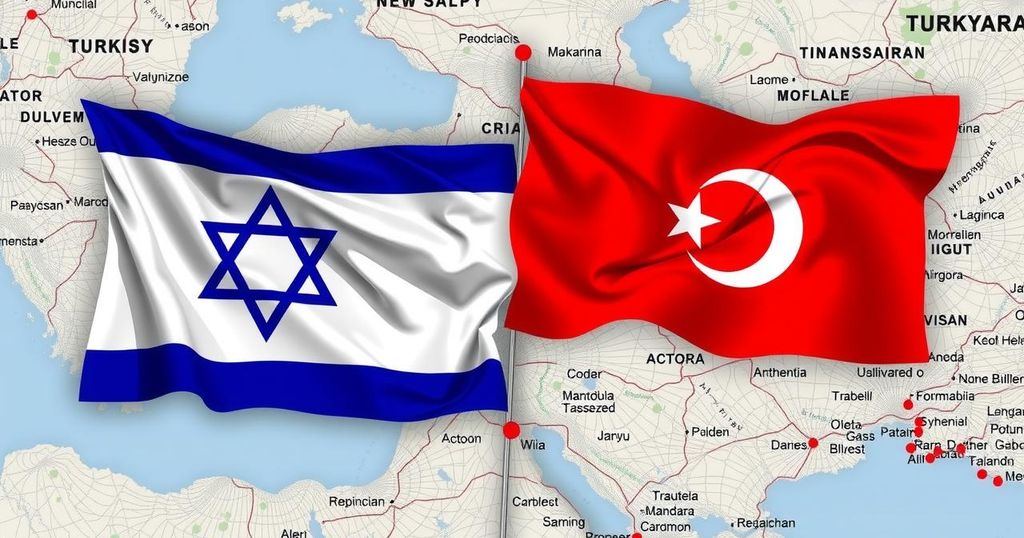The recent overthrow of Syrian President Bashar Assad has led Israel and Turkey to actively pursue their interests within Syria. Israel’s military aims to maintain security by advancing into strategic areas, while Turkey seeks to establish a buffer zone against Kurdish groups. Both nations are navigating the complex political dynamics post-Assad, posing vital implications for regional security and governance.
The shifting political landscape in Syria following the ousting of President Bashar Assad has prompted both Israel and Turkey to exert their influence over different regions of the country. Israel’s military has swiftly advanced into a previously established buffer zone as it seeks to prevent jihadist groups from exploiting the power vacuum left by Assad’s departure. Prime Minister Benjamin Netanyahu emphasized that Israel would not allow radical groups to threaten its security, underscoring the need for the new Syrian administration, now aligned with Hayat Tahrir Al-Sham, to adhere to existing agreements.
In parallel, Turkey is intensifying its efforts to forge a stronger presence in northern Syria. President Recep Tayyip Erdogan is particularly focused on countering Kurdish groups connected to the PKK, which has pursued an autonomous status within Turkey. The Syrian National Army, backed by Ankara, has recently captured territory from U.S.-allied Kurdish forces, indicating Turkey’s ambition to establish a continuous buffer zone along its border.
Meanwhile, the Golan Heights, a region of longstanding contention, remains under Israeli control and offers strategic advantages in monitoring regional threats. Local leaders, including druze community head Dolan Abu Salah, express a cautious approval of Israeli measures aimed at establishing security, urging consideration of the new Syrian regime’s intentions. Amidst this backdrop, Turkish Foreign Minister Hakan Fidan has claimed Turkey’s efforts are not aimed at asserting dominance over Syria but rather at constructing a legitimate partnership with any new government.
The ongoing upheaval in Syria has brought about changes that extend beyond the national leadership to encompass territorial dynamics. The region has become a focal point for both Israel and Turkey, who are employing military and diplomatic strategies to redefine their respective borders and influence the post-Assad political landscape. Israel’s concerns revolve around security threats from militant groups, while Turkey is more focused on countering Kurdish separatism and ensuring stability along its border after hosting millions of Syrian refugees. This complex scenario has unfolded against a backdrop of international interest, particularly from the United States, placing significant pressure on both Israel and Turkey to contour their military actions within a framework potentially conducive to stability in the region. The situation remains volatile, and the stakes are high as the future of Syria remains uncertain.
In conclusion, the rapidly evolving situation in Syria presents strategic challenges and opportunities for both Israel and Turkey. Each country is actively reshaping the region according to their national interests, as Israel seeks to establish security against Islamist threats and Turkey aims to counter Kurdish influence. The interdependence of these actions underscores the intricate dynamics at play in the aftermath of Assad’s fall, with the potential for significantly altering the political landscape of Syria and its borderlands.
Original Source: www.jpost.com







